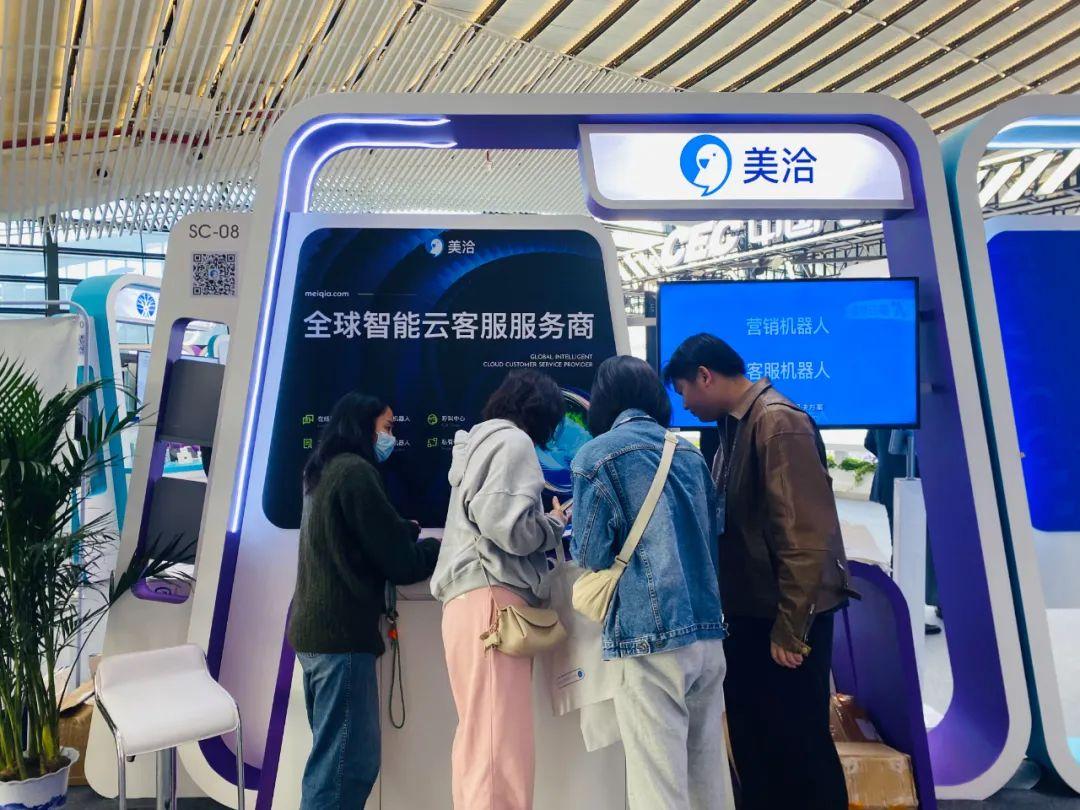
网站公告
more- Online Job S... 25-04-15 19:22
- The Physical... 25-04-15 19:21
- How Generate... 25-04-15 19:21
- Tips And Inf... 25-04-15 19:21
Intelligent Customer Service For Modern Businesses | Customer Support For Smart Businesses | Ultimate Customer Experience For Businesses
LurleneMattner58 2025.04.13 08:23 查看 : 2
In today's fast-paced and digitally savvy world, users have a heightened expectation for service that is instant, intuitive, and always-on | instant, seamless, and accessible | instant, responsive, and reliable. With the rise of social media, a single bad customer experience can spread like a toxic rumor, damaging your brand's reputation and losing you loyal customers. This is where intelligent customer service comes in – the key to unlocking exceptional experiences and staying ahead of the competition.
What is Intelligent Customer Service?
Intelligent customer service is an cutting-edge approach to customer support that uses machine learning algorithms to provide personalized experiences. It's designed to be proactive in solving issues before they become major problems | prevent issues from escalating | eliminate issues before they arise. This makes it an essential component of any successful business model.
 Benefits of Intelligent Customer Service
Benefits of Intelligent Customer Service
1. **Personalization**: Intelligent customer service systems can recognize individual customers and offer customized solutions to specific needs and expectations.
2. **Speed**: chatbot-enabled chatbots and messaging platforms enable prompt responses to customer queries, reducing query resolution times and improving engagement.
3. **Omni-channel support**: Intelligent customer service integrates with various touchpoints – email – to provide consistent experiences across all touchpoints.
4. **Data-driven insights**: Advanced analytics provide businesses with insightful insights into customer behavior, preferences, and pain points, helping to inform product development and marketing strategies.
5. **Cost savings**: Automation and AI-powered support minimize expenses, reducing the need for human intervention and minimizing errors.
Features of Intelligent Customer Service Systems
1. **Natural Language Processing (NLP)**: AI-powered engines can quickly understand customer queries to resolve issues.
2. **Machine Learning (ML)**: Advanced algorithms enable responsive support, adapting to customer behavior over time.
3. **Chatbots and Virtual Assistants**: AI-powered chatbots and virtual assistants provide 24/7 support, answering common questions.
4. **Predictive Analytics**: Advanced predictive models identify potential issues before they arise.
5. **Integration with CRM and ERP Systems**: Seamless integration with CRM and ERP systems streamlines access to customer data and provides unified experiences across all departments.
Implementing Intelligent Customer Service
To get the most out of intelligent customer service, businesses should:
1. **Conduct customer research**: Gather user feedback to inform service design and development.
2. **Choose the right technology**: Select a platform that integrates with existing systems and provides scalable support.
3. **Train human agents**: Collaborate with human agents to enhance their skills and ensure efficient handovers.
4. **Continuously monitor and improve**: Regularly review customer feedback to optimize service efficiency.
Conclusion
Intelligent customer service is a crucial element of any successful business strategy, enabling businesses to stay competitive, build loyalty, and 美洽 drive customer satisfaction. By deploying data analytics, businesses can provide personalized support that meets customer needs. With the right technology and training, companies can unlock exceptional experiences in today's digital landscape.
What is Intelligent Customer Service?
Intelligent customer service is an cutting-edge approach to customer support that uses machine learning algorithms to provide personalized experiences. It's designed to be proactive in solving issues before they become major problems | prevent issues from escalating | eliminate issues before they arise. This makes it an essential component of any successful business model.
 Benefits of Intelligent Customer Service
Benefits of Intelligent Customer Service1. **Personalization**: Intelligent customer service systems can recognize individual customers and offer customized solutions to specific needs and expectations.
2. **Speed**: chatbot-enabled chatbots and messaging platforms enable prompt responses to customer queries, reducing query resolution times and improving engagement.
3. **Omni-channel support**: Intelligent customer service integrates with various touchpoints – email – to provide consistent experiences across all touchpoints.
4. **Data-driven insights**: Advanced analytics provide businesses with insightful insights into customer behavior, preferences, and pain points, helping to inform product development and marketing strategies.
5. **Cost savings**: Automation and AI-powered support minimize expenses, reducing the need for human intervention and minimizing errors.
Features of Intelligent Customer Service Systems
1. **Natural Language Processing (NLP)**: AI-powered engines can quickly understand customer queries to resolve issues.
2. **Machine Learning (ML)**: Advanced algorithms enable responsive support, adapting to customer behavior over time.
3. **Chatbots and Virtual Assistants**: AI-powered chatbots and virtual assistants provide 24/7 support, answering common questions.
4. **Predictive Analytics**: Advanced predictive models identify potential issues before they arise.
5. **Integration with CRM and ERP Systems**: Seamless integration with CRM and ERP systems streamlines access to customer data and provides unified experiences across all departments.
Implementing Intelligent Customer Service
To get the most out of intelligent customer service, businesses should:
1. **Conduct customer research**: Gather user feedback to inform service design and development.
2. **Choose the right technology**: Select a platform that integrates with existing systems and provides scalable support.
3. **Train human agents**: Collaborate with human agents to enhance their skills and ensure efficient handovers.
4. **Continuously monitor and improve**: Regularly review customer feedback to optimize service efficiency.
Conclusion
Intelligent customer service is a crucial element of any successful business strategy, enabling businesses to stay competitive, build loyalty, and 美洽 drive customer satisfaction. By deploying data analytics, businesses can provide personalized support that meets customer needs. With the right technology and training, companies can unlock exceptional experiences in today's digital landscape.
?? 0
Copyright © youlimart.com All Rights Reserved.鲁ICP备18045292号-2 鲁公网安备 37021402000770号

